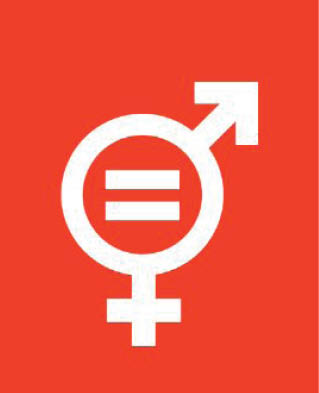By Kenni Ndili
Since the advent of women into the workforce, there has been an intense drive to attain gender equality, which is the equal ability for men and women to pursue opportunities without judgement or discrimination. The fifth sustainable development goal set out by the United Nations is arguably one of the most important: the achievement of gender equality by 2030. This can only be done through the elimination of the root causes of discrimination that hinder women’s rights in both public and private spheres.
Over the past few decades, there has been a lot of progress in ensuring that women and girls have access to opportunities that allow them to reach their greatest potential; more young girls are able to attend school, fewer girls are being forced into early marriage, and women are seeing more representation in government and in positions of power in business. Though gender equality is a development goal, it cuts across all the development goals set out by the United Nations (UN), with gender determinants reflected in 45 out of the 54 indicators for SDGs. All around the world, both government and communities are making concerted effort to advance laws and social norms that advance gender equality.
- Why I have good relationship with my successor, Gov Zulum
- Tears as Sardauna’s grandson, Hassan Danbaba, is buried
Though significant progress has been made, changing pervasive ideas on the status of women in society has been difficult. Female representation in all spheres of politics remains low. While women are increasingly involved in politics, only 22 nations have women who serve as head of state and 119 countries have never had a female leader. This lack of access to positions of power pervades the private sphere in many ways. Women are often under-represented in positions of leadership in formal sector industry jobs and can experience setbacks in their careers for having to balance work with family life.
Women are also especially vulnerable to some of the societal effects of gender bias. In more unequal societies, women have less ability to make autonomous decisions about their health and education and this means they have irregular access to these essential services. Lack of access to these social determinants of health mean that women are more vulnerable to a host of healthcare concerns. This slow progress is fundamentally because cultural norms are often difficult to change without a concerted effort, and this is exactly what is needed to create equal status in society for men and women. The COVID-19 pandemic in 2020 also saw a dramatic increase in the amount of violence against women and young girls, with the pandemic exacerbating the vulnerability that women experience in society.
In November 2021, Nigeria Health Watch held the Future of Health Conference with the theme: “Breaking Glass Ceilings”, with the aim of discussing some of the barriers to gender equality and what can be done to create a more equitable society. An important observation from the conference was the fact men are a fundamental part of the fight for gender equality. The panel “HeForShe” examined the role of men as changemakers and their role in making the workplace accommodating for women and ensuring that society becomes more appreciative of the work that women do.
Gender equality is not only a fundamental human right, but a necessary foundation for a prosperous and sustainable world. Women form an integral part of society and are key to building sustainable societies that can reach their full potential. Acknowledging their vital role forms the first step to creating a gender equitable environment and this can only happen through male and female participation. Studies have shown that inequality between genders stunts economic growth and hinders development. It has also been shown that when women earn income, they invest up to 90% of their earnings back into their households, as compared to men who only spend 35%. This means that when women are empowered, they improve the health and educational indices of their children, a positive spiral that can create long-lasting positive effects on whole sectors of the global population.
Thus far, though the Nigerian Government developed the National Gender Policy in 2006, it has not been implemented. If we want to have any hope of achieving the sustainable development goals set out by the UN, targeted efforts need to be made to ensure that women and girls across Nigeria are given the best resources possible to allow them make the best decisions for their lives.
Kenni Ndili is a Sub-Editor at Nigeria Health Watch

 Join Daily Trust WhatsApp Community For Quick Access To News and Happenings Around You.
Join Daily Trust WhatsApp Community For Quick Access To News and Happenings Around You.

